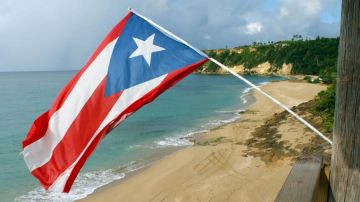The Supreme Court Has Upheld Exclusion of Puerto Rico from Disability Benefits
In yet another blow to the people of Puerto Rico, the U

Photo: Unsplash/ Ana Toledo on
In yet another blow to the people of Puerto Rico, the U.S. Supreme Court has blocked an attempt to secure disability benefits for residents of the island. On Thursday, April 21, 2022, the justices voted 8-1 in favor of a ruling that allows Congress to continue to exclude Puerto Rican citizens from a federal safety net program that provides funds for low-income elderly, blind, and disabled people, that has been in existence since 1972, according to Reuters.
A man by the name of Jose Luis Vaello Madero, who was born in Puerto Rico, but lived in New York for many years before returning to the island later in his life, was cut off from those benefits when the U.S. government realized that he had returned to Puerto Rico four years prior, and was subsequently sued by the Social Security Administration for the $28,000 in payments he received during those four years. Madero challenged that decision, claiming that it violates the U.S. constitution’s “guarantee to equal protection under the law.”
While two lower courts ruled in favor of Madero, the Supreme Court chose to uphold the exclusion of Puerto Rico and other U.S. territories from disability benefits, by reversing the earlier rulings. Only Supreme Court Justice, Sonia Sotomayor, who is of Puerto Rican descent, voted in favor of Madero and extending benefits to U.S. citizens living outside of the United States, reported NPR.
The ruling means that about 300,000 residents of Puerto Rico who might have qualified will not be eligible for those benefits. Justice Brett Kavanaugh wrote in the ruling that the decision was based on the fact that most residents of the island do not pay federal income taxes to the U.S. government. Puerto Rico has been a territory of the United States since 1917 and they are exempt from most federally funded programs though they are eligible for Social Security and Medicare.
In response, Justice Sotomayor, pointed out that if that were the basis of the decision, then residents of states including Vermont, Wyoming, South Dakota, North Dakota, Montana, and Alaska, should also be excluded. “Equal treatment of citizens should not be left to the vagaries of the political process,” wrote Justice Sotomayor. However, Justice Kavanaugh claims that expanding the coverage to include Puerto Rican citizens could cost the U.S. $2 billion a year, and result in Puerto Ricans being required to pay federal income taxes.
This ruling brings the issue of Puerto Rican statehood to the forefront once again, highlighting an ongoing debate among Puerto Ricans and throughout the diaspora. Although statehood is a divisive issue, it would entitle every Puerto Rican to all of the rights of Americans who live on the mainland, including full social security and disability benefits.
Puerto Rican residents have voted for statehood three times, most recently, in 2020, but Congress has continued to deny the island’s admission into the union. Additionally, Puerto Rico’s current governor, Pedro Pierluisi, who was elected into office in November 2020, is pro-statehood.
“Enough of this colonial status that discriminates against us and affects our quality of life. The only and the best solution is statehood,” Pierluisi said in a statement in response to the Supreme Court’s ruling.

















